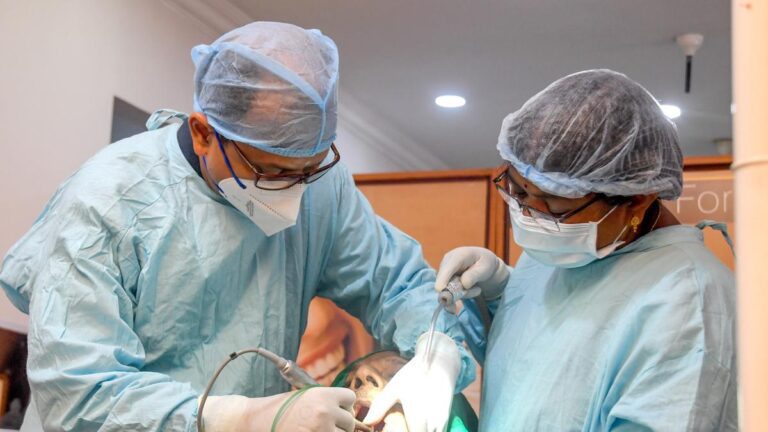Representative file image. | Photography: KR Deepak
The death of a young child (three years old) after a root canal in Kerala recently has prompted parents to question whether toddlers need an invasive procedure, whether it is done under local or general anesthesia, and what’s more, is there a protocol to be followed when dealing with very young patients?
(For top health news of the day, subscribe to our Health Matters newsletter)
While dentists are advocating extreme caution and taking a history before proceeding with treatment, a senior health official said India does not currently maintain any aggregated record of root canal-related deaths among children, although similar incidents have been reported and in the country in the past.
In this most recent case, relatives of the boy in Kerala alleged gross medical negligence, while state police claimed the child was allegedly given anesthesia before the procedure and after regaining consciousness suffered severe discomfort, a significant drop in blood pressure which eventually led to death.
General protocol
“Toddlers may need treatment if their baby tooth is severely damaged or infected. It is, however, vital that the child is assessed before the procedure and monitored to avoid any complications,” said Dr Ajay Sharma, senior dental surgeon from Max Hospital, Delhi. He added that the general protocol is to have an x-ray check of the affected teeth and if there is a time of two to three years for the eruption of the permanent teeth it is better to do a root canal of primary or baby teeth or else. remove tooth and provide retention space. “However, if a permanent tooth is in the process of erupting and the primary tooth is shaking, it is better to remove it,” he said.
A root canal involves removing the infected pulp, cleaning, filling and sealing the space. The cost of root canal treatment in India can range from around ₹1,500 to around ₹12,000 — depending on the location of the tooth and the levels of severity.
Toddlers are offered treatments that include — pulpotherapy (when there is an infection in the pulp), pulpotomy (this is a partial root canal where there is infection limited to the upper part of the tooth) and pulpectomy (which is a full root canal procedure for children). In general, a simple root canal procedure will take anywhere from 30 to 60 minutes, while a complex root canal procedure will take about 90 minutes according to experts.
Performing root canals in children, especially primary (primary) teeth, requires careful thought and a tailored approach. Root canal treatment for baby teeth becomes necessary when infection or severe decay compromises the health of the tooth. Given the unique nature of pediatric dentistry, several precautions and protocols should be followed, said Dr. Adosh Lall, Senior Consultant, Dental Surgeon, Indraprasth Apollo Hospital.
Comprehensive assessment
He said that this treatment should be done through a comprehensive assessment, creating a child-friendly atmosphere to reduce stress, and since children have a limited attention span, the process should be quick as well as accurate. The dentist adds that local anesthesia ensures a pain-free experience, while aftercare instructions for parents are vital for optimal healing and maintaining oral hygiene. “By scrupulously following precautions, pediatric dentists can perform effective root canals and protect children’s oral health up to the age of 14 by ensuring proper development of permanent teeth,” he explained.
Dr Elizebeth Jacob at Mar Baselios Dental College, Kothmangalam, Kerala noted that root canal in infants is a common dental practice and deaths related to the procedure are extremely rare.


